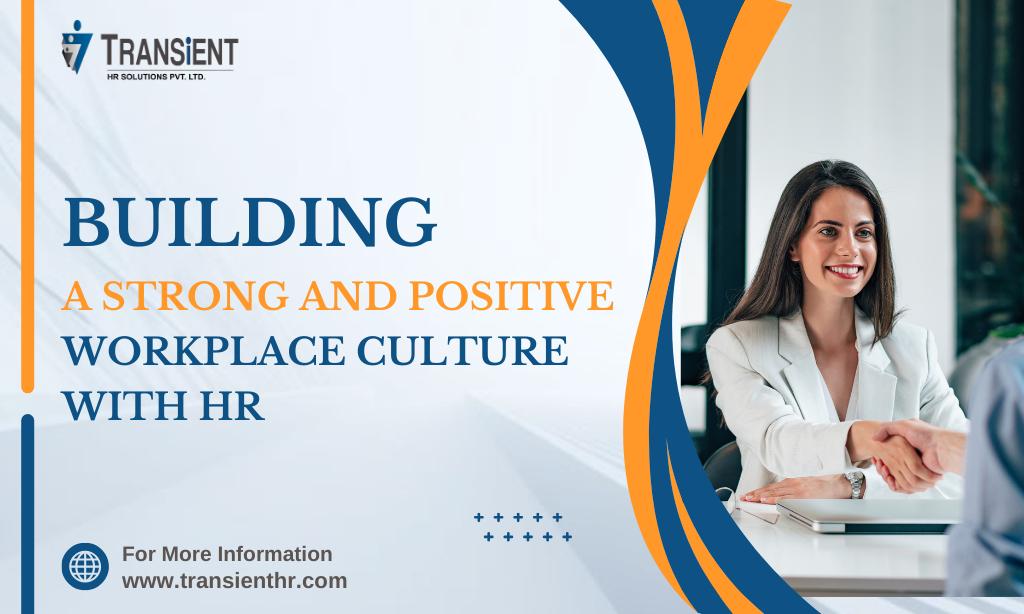
A healthy workplace culture forms the foundation of every thriving organization. It goes beyond policies and perks—it defines how employees interact, collaborate, and feel about their work environment. Human Resources (HR) is central to shaping and nurturing workplace culture. With the right HR practices, companies can create an atmosphere that motivates employees, boosts productivity, and supports long-term growth.
In today’s competitive business world, where talent management and retention are just as important as recruitment, HR is no longer limited to administrative tasks. Instead, it has evolved into a strategic function that aligns employee well-being with organizational goals. This article highlights how HR drives a positive and resilient workplace culture.
1. Creating a Clear Vision and Values
Culture starts with clarity. Employees must know what the company represents, its mission, and how their efforts support the larger vision.HR professionals play a vital role in defining and communicating these values.
By organizing orientation sessions, employee handbooks, and workshops, HR ensures that everyone in the organization is aligned with the company’s vision. When employees feel connected to the company’s purpose, they work with more passion and commitment—helping strengthen overall workplace culture.
2. Recruitment Beyond Skills
Bringing in the right talent is key to shaping a strong workplace culture. HR services today go beyond assessing technical skills and qualifications, focusing also on cultural fit. A candidate with the right mindset often adapts faster and performs better than someone who only has the required expertise.
Modern recruitment processes include behavioral interviews, psychometric testing, and cultural-fit assessments. These tools help ensure that new hires not only bring skills but also contribute positively to the organization’s human resource management goals.
3. Encouraging Open Communication
Transparent communication is one of the pillars of a positive workplace. Employees should feel their opinions matter. HR can create systems like feedback channels, town hall meetings, and suggestion boxes where employees freely share their ideas and concerns.
When employees know their feedback is valued, it fosters trust, builds collaboration, and strengthens the overall HR strategy for employee engagement.
4. Employee Engagement and Recognition
A disengaged workforce can lower productivity and weaken culture. That’s why employee engagement initiatives are so important. HR can design programs that celebrate achievements, reward performance, and encourage participation in organizational events.
Recognition doesn’t always have to be monetary. Even simple thank-you gestures, appreciation in meetings, or spotlighting employees in newsletters can boost morale. Employees who feel appreciated are more likely to stay engaged and dedicated
5. Learning and Development Opportunities
Continuous learning is at the heart of growth. A strong workplace culture empowers employees to learn new skills and grow in their careers. HR can arrange training programs, mentorships, and professional development workshops.
When businesses prioritize training and development, employees feel valued and inspired.This improves retention while keeping the company strong in a fast-changing market.
6. Work-Life Balance and Well-Being
A positive culture is also one that cares about employees’ overall well-being. HR policies that promote flexible work hours, hybrid work models, and wellness initiatives help employees balance personal and professional responsibilities.
HR can also introduce wellness programs, fitness challenges, and mental health resources. When employees are healthy and supported, they bring their best energy to work, which in turn strengthens workplace culture.
7. Diversity, Equity, and Inclusion
Modern HR emphasizes building inclusive environments. A workplace that values diversity and inclusion becomes stronger, more innovative, and more collaborative. HR ensures recruitment and promotion processes are free from bias and discrimination.
When employees feel respected and included, they contribute more meaningfully, and diverse teams bring fresh perspectives that enhance creativity and problem-solving.
8. Conflict Resolution and Fair Policies
Every organization faces challenges. HR plays a vital role in resolving conflicts fairly while upholding transparent policies. Employees must feel that promotions, evaluations, and grievance redressals are unbiased.
Fairness builds trust, and trust builds loyalty. With clear HR policies, employees feel secure, which enhances the organization’s overall workplace culture.
Conclusion
Building a strong and positive workplace culture requires consistent effort, transparent communication, and employee-focused strategies—all driven by HR. From hiring the right talent to strengthening employee engagement, learning, and well-being, HR is at the core of workplace transformation.
If your business is looking to enhance workplace culture and strengthen employee satisfaction, partnering with HR experts is the smartest step. Transient HR, a leading HR company in Thane, Mumbai, provides tailored HR solutions to help organizations build motivated, productive, and future-ready teams. Visit www.transienthr.com to learn more.
